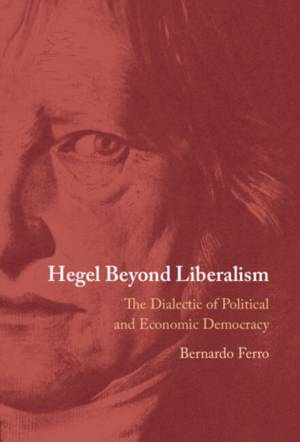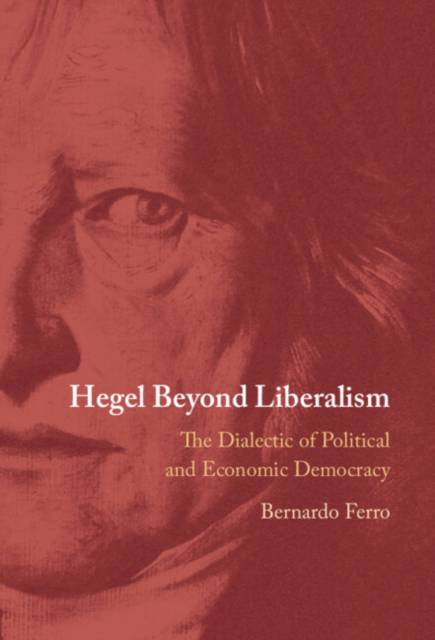
Bedankt voor het vertrouwen het afgelopen jaar! Om jou te bedanken bieden we GRATIS verzending (in België) aan op alles gedurende de hele maand januari.
- Afhalen na 1 uur in een winkel met voorraad
- In januari gratis thuislevering in België
- Ruim aanbod met 7 miljoen producten
Bedankt voor het vertrouwen het afgelopen jaar! Om jou te bedanken bieden we GRATIS verzending (in België) aan op alles gedurende de hele maand januari.
- Afhalen na 1 uur in een winkel met voorraad
- In januari gratis thuislevering in België
- Ruim aanbod met 7 miljoen producten
Zoeken
Hegel Beyond Liberalism
The Dialectic of Political and Economic Democracy
Bernardo Ferro
Hardcover | Engels
€ 187,45
+ 374 punten
Omschrijving
Hegel's political philosophy has long been associated with some form of social or welfare liberalism. Questioning this interpretation, Bernardo Ferro shows that Hegel's work harbours a more ambitious philosophical project, which points to a different vision of modern society. Ferro claims that Hegel's account of the state should be read not as a complement to his characterization of civil society, but as a direct challenge to its underlying logic. He then draws the political and economic conclusions implicit in this line of approach, arguing that the conscious pursuit of the common good Hegel regards as essential to a rational state is not compatible with either a capitalist production system or a constitutional monarchy: a true dialectical synthesis of the particular interests of individuals and the general interests of society entails nothing less than a comprehensive democratization of the economic and the political spheres, and the need for this transformation holds the key to Hegel's enduring political relevance.
Specificaties
Betrokkenen
- Auteur(s):
- Uitgeverij:
Inhoud
- Aantal bladzijden:
- 240
- Taal:
- Engels
Eigenschappen
- Productcode (EAN):
- 9781009584746
- Verschijningsdatum:
- 16/10/2025
- Uitvoering:
- Hardcover
- Formaat:
- Genaaid
- Afmetingen:
- 152 mm x 229 mm
- Gewicht:
- 489 g

Alleen bij Standaard Boekhandel
+ 374 punten op je klantenkaart van Standaard Boekhandel
Beoordelingen
We publiceren alleen reviews die voldoen aan de voorwaarden voor reviews. Bekijk onze voorwaarden voor reviews.









